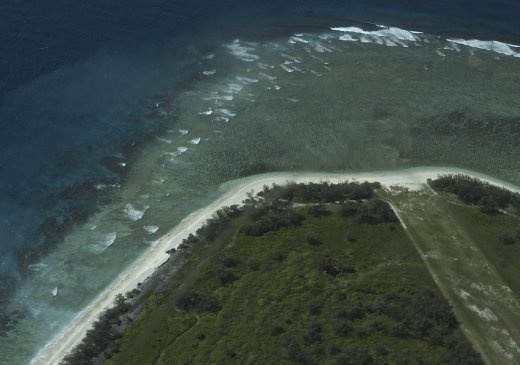
Of the many islands spread
along the east Australian seaboard, there is no such place as Lady Elliot
Island, the southernmost island of the Great Barrier Reef. Only a few hundred metres wide, the coral cay sits on the edge
of the continental shelf and regularly receives inputs of nutrient-rich
oceanic waters, making it a hotspot for marine life by providing food and
a suitable habitat for many species.
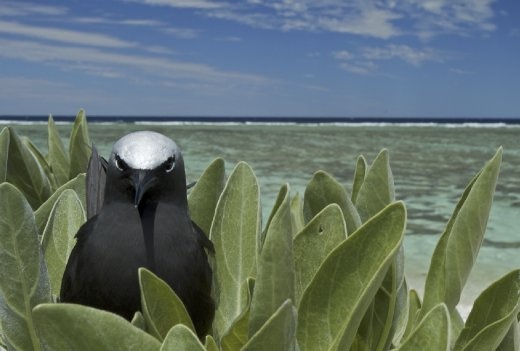
Lady Elliot Island is host to an amazing diversity of seabirds such as the Black Noddy, along with many other migratory species seasonally aggregating to mate and give birth. At sunset, thousands of
birds fly back to the island in chaotic formations to spend the night, offering one of the most amazing spectacles I've ever seen. But to me, the most breathtaking show occurs underwater...
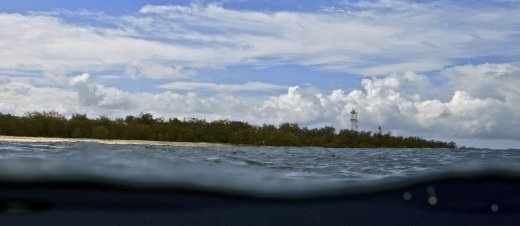
Lady Elliot reefs are host to an amazing
biodiversity. Waters around the island are inhabited by an incredible diversity of fish, ranging from large groupers through to barracudas, reef fish, schools of pelagic fish and even small cleaner fish.
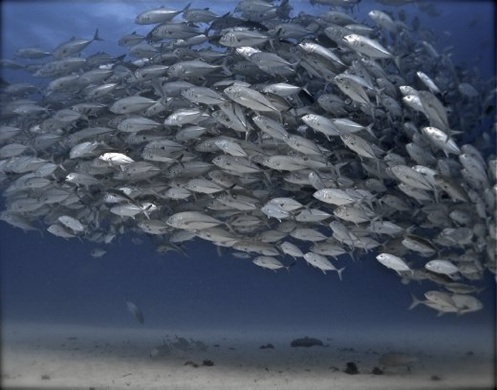
In fact, several sites around the Lady Elliot reef are known as 'cleaning stations', where small specialized fish offer their cleaning services to other bigger species such as sea turtles or manta rays, a beautiful scene that leaves no one unsatisfied. Sea turtles, mostly green and loggerheads, are present in high numbers, with females seasonally adventuring onto the beach to nest. But the most amazing species to me is the manta ray. Growing up to five metres across, these gentle giants are regular visitors of the cleaning stations spread around the island. Present all year around, manta rays aggregate in mass during winter months, where they are seen peacefully cruising, getting cleaned, feeding at the surface and even displaying courtship behaviour under the form of a harmonious 'ballet' where a train of several males follows and reproduces every move made by the leading female. Some other large occasional visitors of Lady Elliot include migrating humpback whales and some big predators such as tiger or hammerhead sharks.
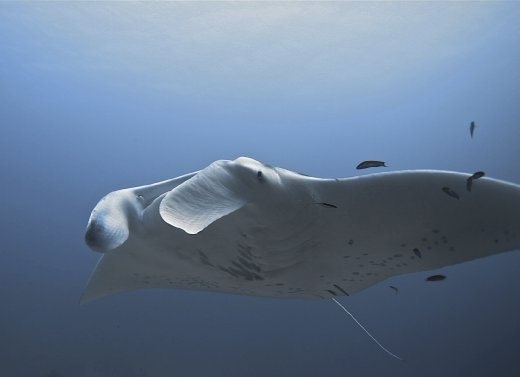
I have been fortunate
to stay on the beautiful Lady Elliot Island several times over the past two years to conduct my research, and I can affirm that this place is amongst the best places to go to on the Great Barrier Reef. My regular expeditions there have provided me with a good opportunity to practice my photography, each time taking
some time to play with my camera settings, carefully think about composition
and approach wildlife up close. Through these regular trips and sharing
my shots with others, I have come to realize that photography is a powerful
tool to raise awareness and I hope that my photographs will one day inspire the need to protect places such as Lady Eliot Island, and to a bigger extent our world's oceans.